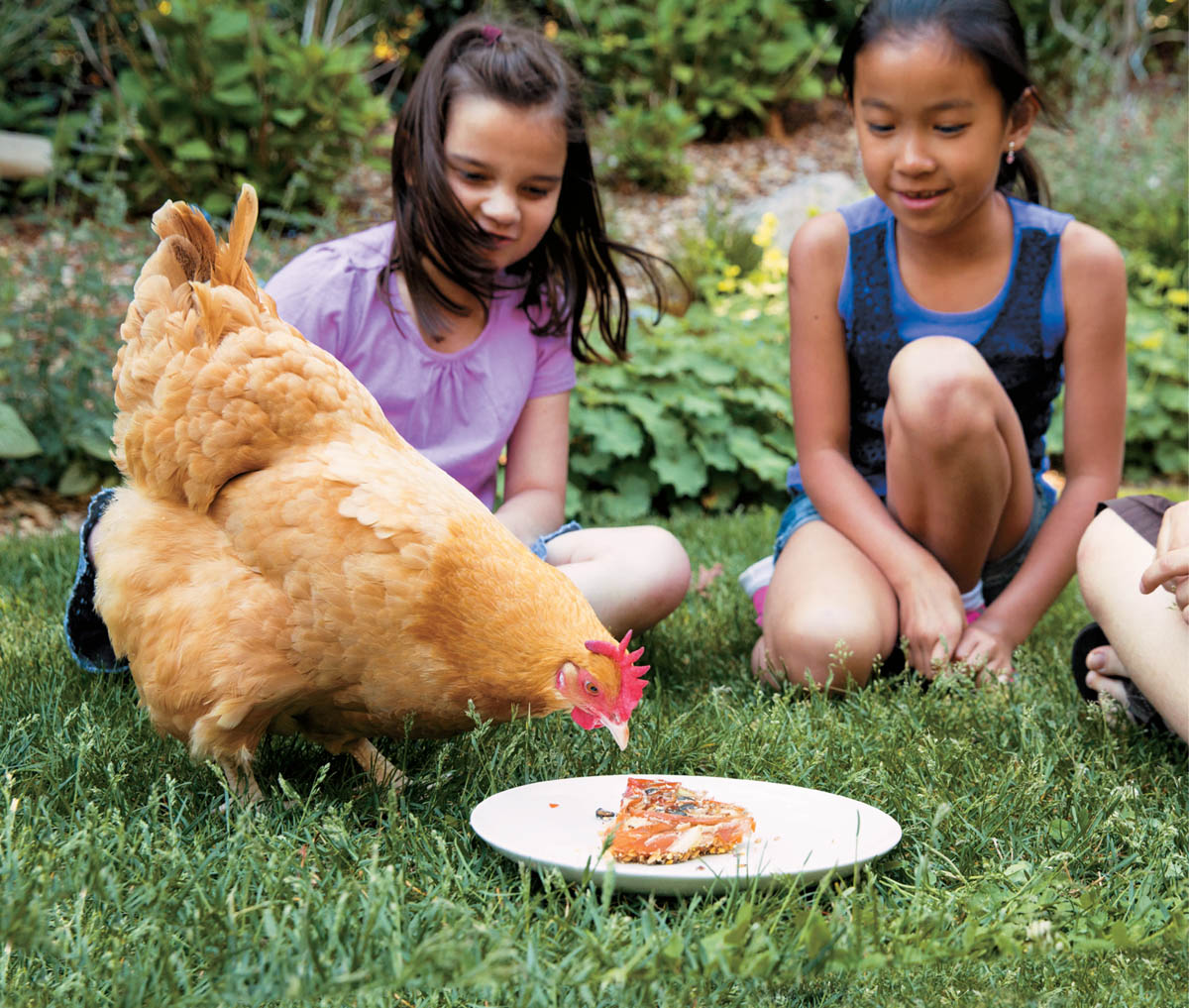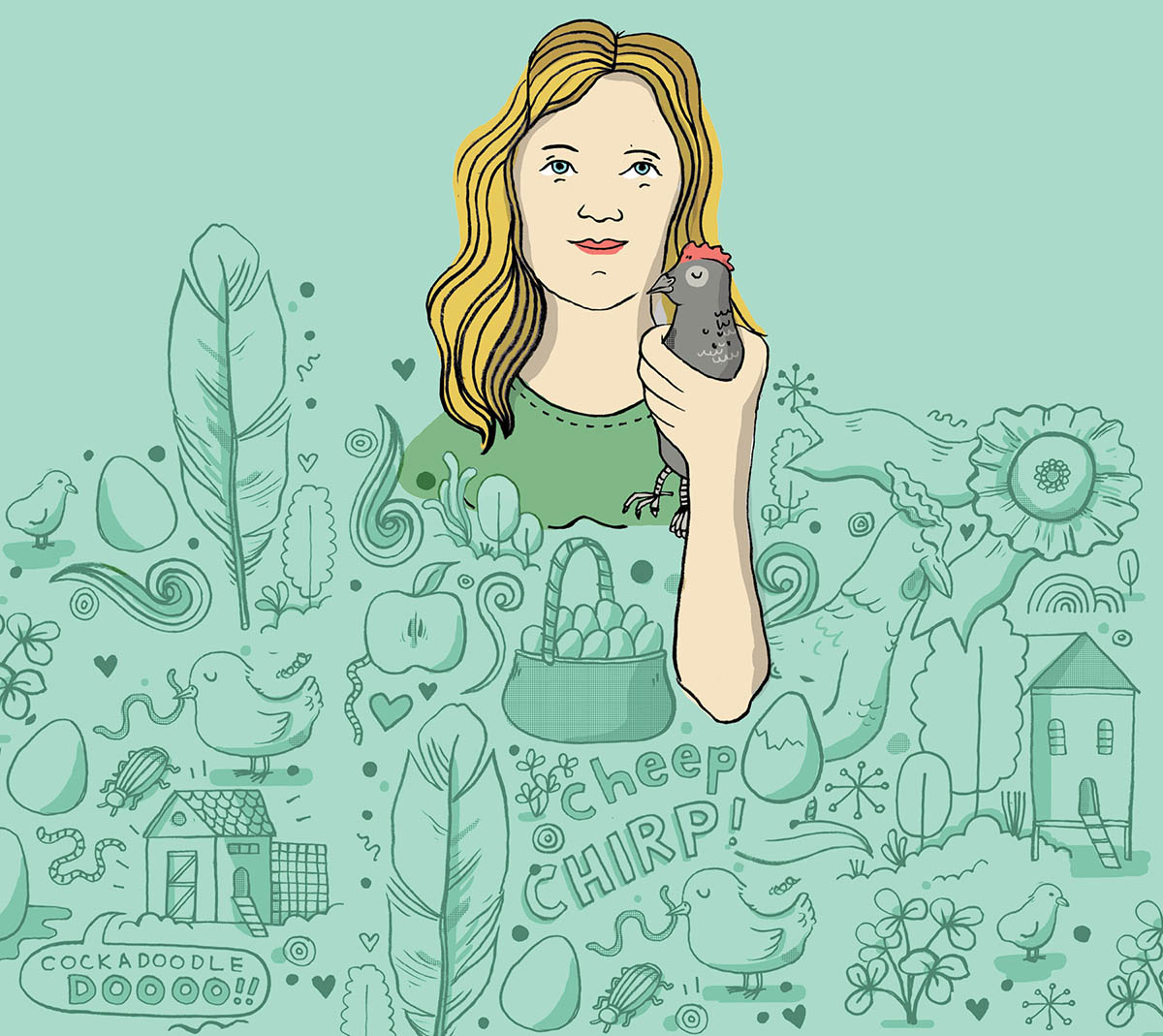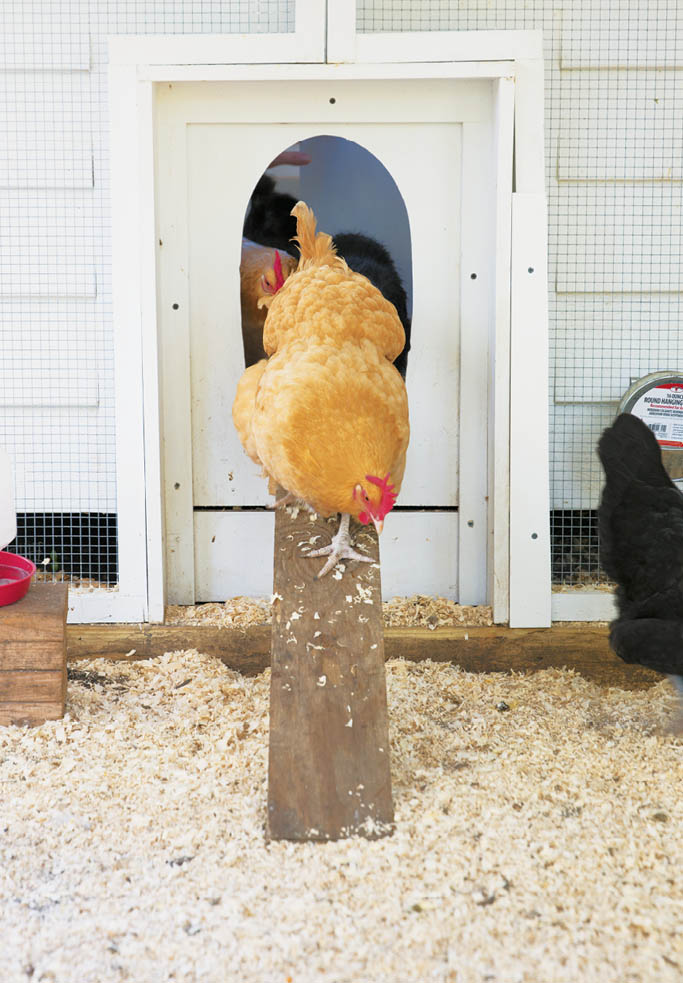
Most folks begin keeping chickens primarily for the eggs. Why wouldn’t you want a pet who can deliver breakfast to you every day, no matter what the weather?
And with their bright, electric-orange yolks and perky egg whites, fresh eggs can’t be beat. Eggs from your own chickens taste better and are healthier for your body. But as people begin to explore the idea of keeping chickens, they find other reasons why chickens are great.
For one thing, you don’t need much room to have a couple of hens. Chickens take up very little space, and whether you live in a big city, the suburbs, or the lush countryside, a small flock of hens can be tucked away anywhere. A small chicken coop can fit into practically any yard. Chickens are easy to care for and require a minimal amount of attention. Chicken-keeping supplies are readily available at feed stores, as well as at many hardware stores and also online.

Chickens are also part of the local food or locavore movement, which is sweeping the country in response to consumer demand for locally produced food, sustainable farming practices, and more self-reliance. As more and more people want to know where their food comes from, and want to be able to grow as much of their own food as they can, farmers’ markets, pick-your-own farms, and restaurants that use local ingredients are becoming increasingly popular.
But there’s another reason that so many people are jumping on the chicken bandwagon — these birds are just plain fun to have around!
Who doesn’t love Jell-O on a summer day? Well, chickens are no exception. They’ll gobble up this easy-to-make treat filled with protein and goodies that you add just for them. Have fun experimenting to see what your flock likes best!

I first started thinking about getting chickens when my kids were little. They wanted a dog; I wanted a pet that did not require quite as much attention. We had just moved to a place where we could garden, and I wanted to show them how to plant vegetables and harvest a crop, and to share with them how valuable the land can be. I also wanted them to understand that producing food isn’t as easy as it seems. At the time, they thought that if you wanted eggs, you could just head down to the supermarket. In reality, each egg is a gift that takes time and effort to produce.
Chickens and kids seem to go hand in hand. We soon learned they make wonderful pets. Each one has her own personality. We had no idea how much fun they could be! Our hens recognize us. They nuzzle with us and sit in our laps. They love to be petted, like a dog or cat. They can be trained. They are capable of emotions. They form a family in which each bird has her own role. They have their own language and communication techniques.
Our chickens have taught us many basic lessons. They remind us about love, patience, acceptance, camaraderie, and compassion. We have learned about the circle of life: saying goodbye, witnessing new life, caring for those with handicaps, and so much more. Our birds are such wonderful teachers that we call living with them going to “chicken school,” and you’ll see boxes throughout this book that tell about what we’ve learned from them. But that’s not all!

Chickens work hard from dusk until dawn, helping keep your yard free from insects such as ticks. They enjoy dining on weeds and scraps from the kitchen. Their manure can be turned into the most amazing compost, which in turn nurtures the garden. Another wonderful thing about keeping chickens is spending more time outside. We all enjoy gardening for ourselves and for the chickens.

How long have you been keeping chickens?
I have had my own chicks for about a year.
What do you love about keeping chickens?
They are pretty easy to care for and they are the type that don’t care what you say. You could call them your best friends. Pluses: Chickens are easy to care for, they can be tamed easily, they are funny, and they are sometimes more smart than you think. Minuses: They aren’t always smart, it can be trouble cleaning out their habitat, and all chickens can peck but usually chicks’ pecks don’t hurt at all.
Do you have a favorite breed and why?
I like bantam breeds, because they are small and inspire nurturing care in kids.
What is your favorite thing about chickens?
I like being encouraged and inspired by chickens. They are bold and brave, and good friends to anyone who’s willing to be brave, too. I think that pretty much sums it up.
Do you have any advice for other kids just getting started?
My best advice is, don’t underestimate a chicken! When they try doing something and they fail . . . well, I would keep an eye on them for the rest of the week. Just one more ultra-important question: ARE YOU READY FOR THIS?!
If you are like us, the most fun is choosing the types of chickens you want to have, but first you need to think about all that is necessary for keeping chickens. Chicken housing should be at the top of your list. Chickens need a dry, safe place to take shelter from bad weather and predators. Chickens also require care and attention — not a lot, but you can’t neglect them!

Chickens spend a lot of time in their coop and run. The coop is their housing, and the run is the fenced-in area that allows the flock access to the outside.
They need fresh food and water daily, and the coop needs some light housekeeping each morning and a good cleaning now and then. You will need to collect eggs a couple times per day, too. Chicken keeping requires a responsible and dedicated owner.
One of the most important things to take into account when planning for chickens is the amount of space that you have for your flock and where they will live. Anyone with a little bit of space can raise chickens, but you must keep your space and living conditions in mind when you select your breeds. If you live in the country, your flock can have more space. If you live in the city, your chickens will most likely be confined to their coop and an outside run most of the time.
Some breeds handle confinement well. Other breeds do better when allowed to roam free. The important thing is to provide enough space so that the living areas do not develop odors, the chickens don’t fight, and everyone is healthy and thriving.
Before you get too excited about chickens, take some time to research whether you are legally able to keep them in your town. Some towns have strict rules and regulations. Some have guidelines about the number of chickens you can have. Some have limitations on keeping roosters. Others require you to keep the chicken coop a certain distance away from property lines, buildings, neighbors, and so forth.
Please use your common sense and be a courteous neighbor. For example, figure out how to prevent your chickens from wandering into neighbors’ yards without permission. Keep your chicken coop clean and take good care of your birds.
Eggs are a wonderful way to connect with your neighbors — sharing a gift of eggs can make even a wary neighbor curious and supportive about your backyard chickens.
A standard-sized chicken needs a minimum of 10 square feet of space to live comfortably. The coop should provide 2 to 3 square feet of that total, with an additional 8 or so square feet in the run. Bantams need 5 to 7 square feet per bird.
As an example, a flock of four standard hens should have 8 to 12 square feet of coop space and at least 32 square feet in their run. A coop that is 3 feet wide by 4 feet long (12 square feet) allows for 3 square feet per chicken. A run that is 4 feet wide by 10 feet long (40 square feet) will provide adequate space for a flock this size.
It is always best to give your flock as much space as you can, especially if they will spend most of their time confined to the coop and run. In colder climates, where chickens spend more time indoors in poor weather, a larger coop might be a good choice. In warm climates, where the flock can spend more of its time outdoors and use the coop only for laying eggs and sleeping, a smaller coop works just fine.
Another important thing to keep in mind is how long your chickens will live. Chickens typically live anywhere from 5 to 7 years, but some can live as long as 20 years. Hens lay the most eggs during the first couple of years, but after that, egg production tapers off and becomes more sporadic. When egg production dips, some people choose to find a new home for their entire flock and begin again with young chicks in the spring.
Other folks keep their aging chickens and add new chicks to the flock, which means increasing their living space. As you figure out space requirements for your initial flock, you might want to factor in a little extra room just in case you decide to add to your flock later.
You may be surprised to hear that chickens require just a little of your time each day. I estimate that all of their daily needs can be provided for in less than 20 minutes a day!
For the most part, your flock will wake up each morning and return to the coop at dusk. On your days off from school or during summer, you can mix up your routine. It won’t bother the flock one bit!
But always remember that they can’t take care of themselves, so it is very important that you (or someone you trust) check on your flock every single day. When you go on vacation, you’ll need to plan ahead.
Before you go away, talk to a friend or neighbor who can take over while you are away. Make sure they know the whole routine. Many people are happy to help out because of the fresh eggs they can take home!
Good Morning! The chores start when you let the chickens out of their coop into the run.

Fill Feeder: While they stretch their legs, top off the feeders as needed.

Check Waterer: Chickens need plenty of fresh, clean water.

Look for eggs: Take a peek to see if any of the hens have been busy.

Tidy up coop: Scoop out manure, if necessary, before your day’s adventures.

Free time! If you let your flock free-range, this is a good time to let them roam.

Fun with your flock: Spend some time just hanging out with the hens or make them a special treat.

Check for more eggs: Check for afternoon eggs. There might be some late layers!

Time for bed: As it gets dark outside, make sure all the chickens are safely inside the coop.

Lock up tight: You don’t want any predators sneaking into the coop at night.

What is the best way to do your research before you order your flock? A poultry show is a terrific place to start and lots of fun to go to. Poultry shows happen throughout the year all over the country (a search on the Internet should turn up a few near your home). At almost any show, you’ll find many different breeds and plenty of owners who are willing to “chat chicken.”
Don’t feel shy — just be friendly and ask questions. Look for kids like you who are showing their birds at the event. Most chicken owners are happy to share their experiences and tell you why they fell in love with a particular breed.

Female chickens are called pullets for the first year of life, then they are called hens.
Male chickens are called cockerels for a year before they are called roosters.
Hens start laying eggs at five to six months of age. The larger the breed, the longer the wait for eggs.
Hens lay the most eggs during their first two years of life.
Chickens live an average of five to seven years with proper care.
When you can’t find a chicken show in your area, here are some other places to look for information.